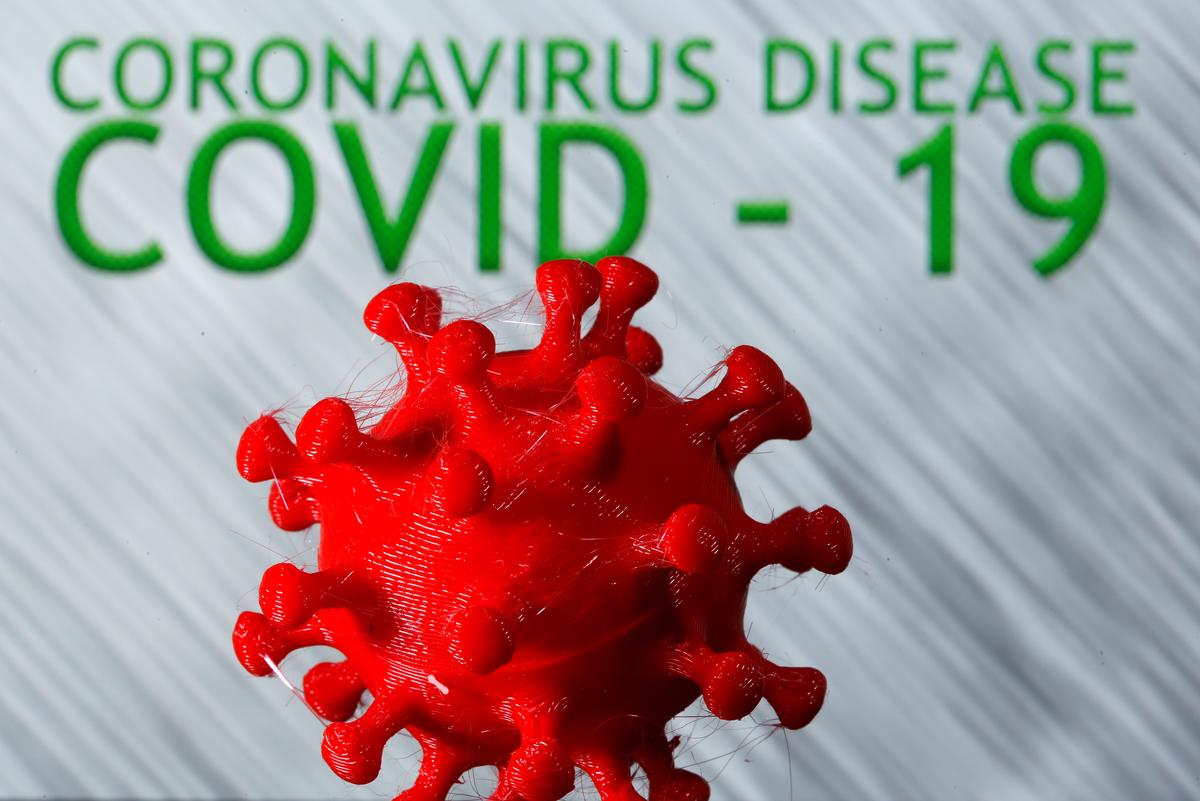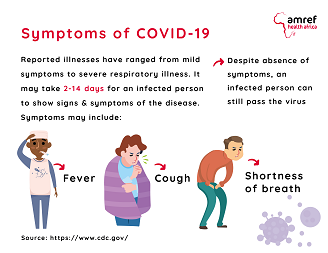
COVID SAFETY
Steps taken by Kalinga University for a safe environment for its students – COVID-19
Kalinga University’s main objective is to provide a safe and sanitized campus for its students. Kalinga University remains focused on providing critical prevention and safety services during this time; helping the patrons to navigate the pandemic to ensure the safety of its students & staff.
Coronavirus Disease (COVID-19) - Overview
Coronavirus Disease (COVID-19) - Overview
Most people infected with the COVID-19 virus will experience mild to moderate respiratory illness and recover without requiring special treatment. Older people and those with underlying medical problems like cardiovascular disease, diabetes, chronic respiratory disease, and cancer are more likely to develop serious illness. Young children up to the age of ten are also susceptible to the coronavirus disease.
The best way to prevent and slow down transmission is be well informed about the COVID-19 virus, the disease it causes and how it spreads. Protect yourself and others from infection by washing your hands or using an alcohol based rub frequently and not touching your face.
The COVID-19 virus spreads primarily through droplets of saliva or discharge from the nose when an infected person coughs or sneezes, so it’s important that you also practice respiratory etiquette (for example, by coughing into a flexed elbow).
At this time, there are no specific vaccines or treatments for COVID-19. However, there are many ongoing clinical trials evaluating potential treatments.

Global and India Spread

The COVID-19 pandemic is the defining global health crisis of our time and the greatest challenge we have faced since World War II. Since its emergence in Asia late 2019, the virus has spread to every continent except Antarctica. Cases are rising daily in Africa the Americas, and Europe.
Countries are racing to slow the spread of the virus by testing and treating patients, carrying out contact tracing, limiting travel, quarantining citizens, and cancelling large gatherings such as sporting events, concerts, schools, institutions, universities. The pandemic is moving like a wave—one that may yet crash on those least able to cope.
The first case of COVID-19 in India, which originated from China, was reported on 30 January 2020. The United Nations (UN) and the World Health Organization (WHO) have praised India's response to the pandemic as 'Comprehensive and Robust,' terming the Lockdown Restrictions as aggressive but vital for containing the spread and building necessary healthcare infrastructure.
General Precautions
To reduce your chances of being infected or spreading COVID-19 is by taking some simple precautions:
- Regularly and thoroughly clean your hands with an alcohol-based hand rub or wash them with soap and water. Washing your hands with soap and water or using alcohol-based hand rub kills viruses that may be on your hands.
- Maintain at least 6 feet distance between yourself and others. When someone coughs, sneezes, or speaks they spray small liquid droplets from their nose or mouth which may contain virus. If you are too close, you can breathe in the droplets, including the COVID-19 virus if the person has the disease
- Avoid going to crowded places. Where people come together in crowds, you are more likely to come into close contact with someone that has COIVD-19 and it is more difficult to maintain physical distance.
- Avoid touching eyes, nose and mouth. Hands touch many surfaces and can pick up viruses. Once contaminated, hands can transfer the virus to your eyes, nose or mouth. From there, the virus can enter your body and infect you.
- Make sure you, and the people around you, follow good respiratory hygiene. This means covering your mouth and nose with your bent elbow or tissue when you cough or sneeze. Dispose of the used tissue immediately and wash your hands.
- Wear appropriate Personal Protective Equipment (PPE) like face masks, hand gloves, eye protectors, etc. Droplets spread virus. By following good respiratory hygiene, you protect the people around you from viruses such as cold, flu and COVID-19.
- Restrict your travel, except to make essential trips like groceries, medicines, study supplies, etc. If working or studying (going to College/University); after the work or classes are complete, directly go home without diverting route for unnecessary stoppages.
- Keep up to date on the latest information from trusted sources, such as WHO or your local and national health authorities.

Steps taken by Kalinga University to ensure a safe and sanitized campus for its students and have a minimal contact working environment during Covid-19

- Cleaning and disinfecting protocols are established for campus and University hostels.
- Thermal screening of all patrons mandatory, along with compulsory hand hygiene.
- Installation of hands free (foot pedal) sanitizers around the campus.
- Kalinga University develops its own hand sanitizer which is prepared by the Department of Chemistry. It is tested and approved by the appropriate authorities and is in use in the entire Kalinga University campus.
- Installation of Sanitization Tunnels and Sanitization Gates to ensure overall sanitization process.
- Making mandatory for all students, visitors as well as staff to wear face masks at all times.
- Ensuring no big gathering of people at one point or in general, maintaining of safe distance and other protocols.
- Implementation of posters and audio-visual media on preventive measures about COVID-19 displayed prominently.
- Proper crowd management in the parking lots and outside the premises – duly following social distancing norms shall be ensured.
- Maintaining physical distancing of a minimum of 6 feet, inside the campus and at areas of queues, lines or group standing/seating like mess, cafeteria, library, labs, class rooms, etc. (Limited entry to Library, Labs, etc).
- Effective and frequent sanitation & sanitization within the premises will be maintained with particular focus on lavatories, drinking and hand washing stations/areas.
- Cleaning and regular disinfection of frequently touched surfaces in common areas.
- In the mess and cafeteria, adequate crowd and queue management will be ensured and not more than 50 per cent of seating capacity will be permitted.
- Mess and cafeteria staff will wear head covers, face mask and hand gloves and take other required precautionary measures, the seating arrangement will ensure adequate social distancing between patrons as far as feasible and tables should be sanitized.
- An antimicrobial coating application will be done to keep surfaces clear of a human coronavirus for up to 90 days. This will be used throughout the campus facility, which will be repeated after a period of 3 to 4 months.
- Cleaning and sanitizing supplies provided for faculty and students.
- Plexiglass barriers on service desks and footsteps marks on the ground installed in areas where transactions occur.
- Gym/Fitness/Sports Centre services will be closed.
What to do after coming back from University campus
- Disinfect your phone, name tag or ID badge, eyewear, and any study supplies.
- Handle possibly contaminated items (shoes, bag, etc) with care.
- Place clothes worn to University directly into the washing when you get home.
- Wash your clothes and dirty cloth bag with detergent.
- Leave your work shoes outside the home.
- Shower immediately after arriving home.

Nutrition advice during the COVID-19

Proper nutrition and hydration are vital. People who eat a well-balanced diet tend to be healthier with stronger immune systems and lower risk of chronic illnesses and infectious diseases. So you should eat a variety of fresh and unprocessed foods every day to get the vitamins, minerals, dietary fibre, protein and antioxidants your body needs.
Drink enough water. Avoid sugar, fat and salt to significantly lower your risk of overweight, obesity, heart disease, stroke, diabetes and certain types of cancer.
Eat fresh and unprocessed foods every day
- Eat fruits, vegetables, legumes (e.g. lentils, beans), nuts and whole grains (e.g. unprocessed oats, wheat, brown rice or roots such as potato), and foods from animal sources (e.g. meat, fish, eggs and milk).
- Daily, eat: 2 cups of fruit (4 servings), 2.5 cups of vegetables (5 servings), 180 g of grains, and 160 g of meat and beans (red meat can be eaten 1−2 times per week, and poultry 2−3 times per week).
- For snacks, choose raw vegetables and fresh fruit rather than foods that are high in sugar, fat or salt.
- Do not overcook vegetables and fruit as this can lead to the loss of important vitamins.
- When using canned or dried vegetables and fruit, choose varieties without added salt or sugar.

Drink enough water every day

- Water is essential for life. It transports nutrients and compounds in blood, regulates your body temperature, gets rid of waste, and lubricates and cushions joints.
- Drink 8–10 glasses of water every day.
- Water is the best choice, but you can also consume other drinks, fruits and vegetables that contain water, for example lemon juice (diluted in water and unsweetened), tea and coffee. But be careful not to consume too much caffeine, and avoid sweetened fruit juices, syrups, fruit juice concentrates, fizzy and soft drinks as they all contain sugar.
Eat moderate amounts of fat and oil
- Consume unsaturated fats (e.g. found in fish, nuts, olive oil, soy, canola, sunflower and corn oils) rather than saturated fats (e.g. found in fatty meat, butter, coconut oil, cream, cheese, ghee and lard).
- Choose white meat (e.g. poultry) and fish, which are generally low in fat, rather than red meat.
- Avoid processed meats because they are high in fat and salt.
- Where possible, opt for low-fat or reduced-fat versions of milk and dairy products.
- Avoid industrially produced trans fats. These are often found in processed food, fast food, snack food, fried food, frozen pizza, pies, cookies, margarines and spreads.

Eat less salt and sugar

- When cooking and preparing food, limit the amount of salt and high-sodium spices & seasonings.
- Limit your daily salt intake to less than 5gm (approximately 1 teaspoon), and use iodized salt.
- Avoid foods (e.g. snacks) that are high in salt and sugar.
- Limit your intake of soft drinks or sodas and other drinks that are high in sugar (e.g. fruit juices, fruit juice concentrates and syrups, flavoured milks and yogurt drinks).
- Choose fresh fruits instead of sweet snacks such as cookies, cakes and chocolate.
Improve Your Diet
- The food you eat plays a key aspect in determining your overall health and immunity. Eat low carb diets, as this will help control high blood sugar and pressure.
- Regularly consume vegetables and fruits rich in Beta carotene, Ascorbic acid & other essential vitamins.
- Certain foods like mushrooms, tomato, bell pepper and green vegetables like broccoli, spinach are also good options to build resilience in the body against infections.
- You can also eat supplements rich in omega 3 & 6 fatty acids for your daily dose.
- Some natural immunity supplements include ginger, gooseberries (amla) and turmeric.
- There are several herbs that help in boosting immunity like garlic, Basel leaves and Black cumin
- Certain seeds and nuts like sunflower seeds, Flax seed, pumpkin seeds and melon seeds are excellent sources of protein and vitamin E.
- Probiotics like Yoghurt, Yakult and fermented food are also excellent sources to rejuvenate the composition of gut bacteria, which is important for nutrient absorption by the body.

Don’t Compromise on Sleep

- Good snooze time for 7-8 hours is the best way to help your body build immunity; lesser sleep will leave you tired and impair your brain activity.
- The lack of sleep will prevent the body from resting and this will impair other bodily functions that will have a direct impact on your immunity.
- Lack of sleep adversely affects the action of the flu vaccine.
Stay Hydrated
- Drink up to 8-10 glasses of water every day, to stay hydrated.
- Hydration will help flush out the toxins from the body and lower the chances of flu.
- Other alternatives include juices made of citrus fruits and coconut water, to beat the heat.

Don’t Skip on Exercise

- A good diet should be followed by an exercise routine.
- Remember to exercise regularly; even light exercise will go a long way in releasing the toxins from your body.
- It is recommended to exercise for 30 to 45 minutes, depending on your stamina. If you have not started exercising yet, then it is a good time to start.
- Regular exercise improves metabolism, which has a direct correlation with body immunity. .
De-stress Yourself
A prolonged period of staying indoors has its implications on your mental wellbeing. The growing anxiety around the pandemic is another concern that is affecting millions across the globe. While the uncertainty might be overwhelming, there are few steps we can follow regularly to help relieve our stress, stress is known to have an adverse effect on immunity.
- Practice meditation
- Avoid Smoking, alcohol and other addictive substances
- Avoid all kinds of non-essential travels.

Supplements and immunity boosting foods

Vitamin C: This particular vitamin is a crucial participant in the army of immunity. It helps prevent the common cold. It acts as a powerful antioxidant and protects against damage induced by oxidative stress. For severe infections, including sepsis and acute respiratory distress syndrome (ARDS), high dose intravenous vitamin C treatment has been shown to significantly improve symptoms in patients.
Vitamin D: Vitamin D supplements have a mild protective effect against respiratory tract infections. Most people are deficient in Vitamin-D, so it’s best to consult with a doctor about taking a Vitamin D supplement to boost immune response.
Zinc: Zinc is a vital component to WBC (white blood corpuscles) which fights infections. Zinc deficiency often makes one more susceptible to flu, cold and other viral infections. It is advisable to take a zinc supplement, especially for older people.
Elderberry: Elderberries are full of nutrients including minerals like phosphorus, potassium, iron, copper and vitamins, such as vitamin A, B, and C, proteins and dietary fibre. Elderberries have antibacterial and antiviral qualities which help fight cold and influenza.
Turmeric and Garl: The bright yellow spice, Turmeric, contains a compound called curcumin, which boosts the immune function. Garlic has powerful anti-inflammatory and antiviral properties which enhances body immunity.